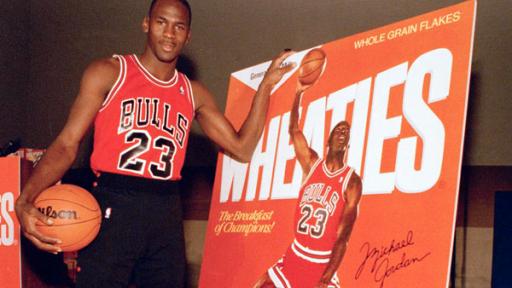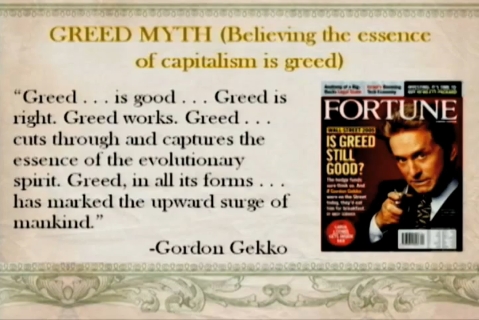“I Wanna be like Mike”
to quote the 1992 Gatorade commercial.
The advertisement campaign I refer to was merely a promotional ploy focused on selling orange beverages, but it is also an example of how endemic the belief that Michael Jordan’s has no equal on a basketball court and how this myth has been spread through society.
Media, fans, reporters and players have all reiterated this notion time and time again which installs Michael Jordan as by far the greatest basketball player of all-time.
He is not.
No matter what “numbers” one uses to measure Jordan against his peers his achievements are matched or beaten by other greats, players forgotten by those who use ESPN as their resource for basketball knowledge.
‘Jordan won six Championships’
True, but Bill Russell won eleven championships. If we want to use championship glory as a measuring stick than Jordan is only the tenth greatest player of all-time… behind Robert Horry and Jim Losctufoff (7 titles each) mind you.
‘But he was also a five time league MVP’
So too were Bill Russell (five times) and Kareem Abdul-Jabbar (six times). Heck, it’s likely so too will LeBron James before he retires (LeBron currently has four NBA MVP’s).
‘He was the NBA’s greatest scorer’
Jordan averaged 30 points per game, but so did Wilt Chamberlain, who once scored 100 points in a game, something Jordan came nowhere close to.
Many other players had greater scoring performances than Jordan;
- Kobe Bryant – 81 point career high
- David Thompson – 73 point career high
- Elgin Baylor – 71 point career high
- David Robinson – 71 point career high
If you needed a player to score as many points as possible in one game wouldn’t one of these players be more qualified?
There are no definitive numbers that Jordan loyalists can point to which clearly distances his “Airness” from careers like, Russell’s, Chamberlain’s, Abdul-Jabbar’s or Oscar Robertson, who averaged a triple-double for an entire season once. So how did Michael Jordan become the “fashionable” player to be considered the greatest?
The Jordan myth is empowered by being at the right place at the right time. Jordan’s drafting in 1984 coincided with the reality that up until 1984 little NBA games were shown on television with local stations only broadcasting local games. If you lived in Boston you only ever saw Celtics games, in New York, you only were able to see Knicks games. “ESPN began distributing sports programming outside the United States in 1983” (Encyclopedia Britannica 2011).
This rare situation no doubt allowed Jordan’s agent, David Falk, to offer a deal to Nike where for a fee cheaper than usual they could use Jordan’s image if he was used as ‘the face’ of their brand. “In 1988 Jordan became the first basketball player ever on a Wheaties box” (Porter, D 2007. pg 69).
This innovative move united with Falk’s savvy decision to split the Jordan brand among advertisers like Coca-Cola, Chevrolet, Gatorade and McDonald’s to allow maximum exposure at one time. Michael Jordan was the auspicious recipient of being the first athlete to be nationally promoted by multiple consumer products in the mid-late 1980’s.
Jordan would have been one of the first Chicago Bulls players many people across the United States and the world would have ever seen due to the lack of NBA exposure.
Combine this with ESPN hoping to increase brand recognition for the NBA, partnering it’s product with Jordan, the most well-known player to the “casual fan” became the perfect strategy to increase NBA viewership.
At a time when capitalism was rife and America echoed the Gordon Gecko’s quote in Wall Street (1987) “Greed is Good”, Jordan was on a consumer product in every home across America and at a time when media and commercial saturation of an individual had never been done before Jordan performed better than any other basketball player.
People have an innate need to be a part of something. People who saw Jordan when they were young want Jordan to be the best because it enriches their lives if they have been witness to the greatest player ever. Jordan’s legacy is enhanced because his career coincided with the boom of consumerism, television expansion and product placement.
The consumerism of the 1980’s and 1990’s was so successful in promoting Michael Jordan that it was able to erase some of the more important numbers when measuring Jordan’s career.
0 titles without All-Stars
Michael Jordan needed a very talented cast to help him win his titles.
The success of the Chicago Bulls was always reliant on Jordan’s virtuosity scoring abilities rather than passing the ball to teammates which would create difficult defensive switches.
This strategy was extremely limited until Pippen became an All-Star in 1990 and the team had either Horace Grant or Dennis Rodman (both NBA All-stars) to contribute to any deep playoff run.
This strategy did not work in the 80’s before the Bulls drafted Pippen and any suggestion that Jordan had a weak “supporting cast” is greatly mistaken. Jordan was never without one or more all-stars during his championship seasons which is better than what a lot of other teams had.
Isiah Thomas won a title in 1989 as the only all-star on his team. It’s something that’s been done many times and certainly not impossible, recent teams include;
- 2011’s Dallas Mavericks only All-Star was Dirk Nowitzki
- 2004’s Detroit Pistons only All-Star was Ben Wallace
- 2003’s San Antonio Spurs only All-Star was Tim Duncan
Even Hakeem Olajuwon, whose Rockets won back to back titles in Jordan’s absence won his titles as the team’s only all-star. But this is something that Jordan could not do.
6 expansion teams
Michael Jordan won his championships when the league was at its weakest.
In 1987 when Jordan was struggling to get past the first round, there were 23 teams. Between 1988-1995, when the Chicago Bulls had their greatest success the NBA’s popularity caused the league to add 6 expansion teams (Miami, Charlotte, Minnesota, Orlando, Vancouver and Toronto) to the league.
27% of the league’s players were re-distributed among the incoming teams. This resulted in a highly diluted league which allowed Jordan to win his titles at the weakest time in NBA history. Consider the fact that in 1998, the year MJ won his sixth title there were six teams that did not make it past twenty wins. 20% of the NBA lost more than sixty games.
55 wins
The Chicago Bulls won 57 games in 1993, when Jordan retired to play baseball they won 55 games, only two games less
When a great player leaves his team, typically the team falls apart after he leaves. This can be seen in a number of instances. When LeBron left the Cavs in 2010, the Cavs record dropped by over 40 wins the following season. When Shaq left the Lakers, they had difficulty making it to the postseason the first few years after he left.
So when the “greatest player of all time” left the Chicago Bulls after his first retirement, you would imagine they lost by like, at least 20 more games the following season, right? In actuality, behind the amazing play of Scottie Pippen, the Bulls dropped only two more games than in their previous season. When a league MVP leaves his team, not to mention if the “Greatest Player of All Time” retires, shouldn’t his team completely sink without him?
3 year drop off?
Only three years after being All-Star MVP, League MVP, Finals MVP and NBA champion Jordan was a shadow of his former self at Washington.
Sure, he wasn’t in his prime during his time in Washington, but we are still talking about the guy people say is clearly the “greatest player of all time” here aren’t we? Only three years after winning a title and every MVP you can think of, you’d think the greatest player of all time would be able to at least drag his team into the playoffs three years later? But no, the Wizards did not make the playoffs in either of the two years MJ was with the team.
Wilt Chamberlain was never on children’s cereal and Bill Russell was rarely seen on television outside Boston. A plethora of great players achieved great things and have been all but ignored due to global market saturation of the Jordan brand which companies perpetuate in order to sell the latest cereal, sugary drink or athletic shoes.
‘All the NBA stars say Jordan was the greatest’
Take Charles Barkley, whose quotes often cause attention, he refers to Jordan as being the greatest basketball player ever. Barkley and many other people in media often rank Jordan as the greatest. But do they have an ulterior motive? Could refering to Jordan’s greatness, in turn, benefit their own legacies?
Barkley was denied an NBA championship by Jordan numerous times in Phoenix and Philadelphia, therefore it benefits Barkley to state this as in turn this infers that he was denied a championship as a result of having to play during the same era as the “Greatest Ever” instead of his own falling short due to his own shortcomings.
NBA media personalities are often former players from the 1990’s who were denied championships by Jordan. These players legacies are benefited by portraying Jordan in this light. But what do players/coaches say whose answers would not involve any kind of personal gain by listing Jordan as the greatest?
Phil Jackson, who coached Michael to all six of his championships said he would take Bill Russell over not Michael Jordan.
Julius Erving, the man Jordan spent his entire career trying to emulate points to Lakers legend Kareem Abdul-Jabbar as the greatest of all time.
” For him to that (being the best ever). for me, he (Lebron) has to surpass Kareem Abdul-Jabbar. He is the best to ever play the game” said Erving.
In 1985, Larry Bird called Jordan as a rookie the best ever. But when MJ retired in 1998, he said: “Is he the greatest? He’s in the top two.”
Kareem Abdul-Jabbar and Oscar Robertson, two men who belong in the conversation of greatest players also, have made it known that they do not rate Jordan as the greatest NBA player ever. Both men have stated that there are several players are in the conversation, Abdul- Jabbar adding that he thinks Oscar Robertson was superior to both Jordan and Lebron
This article is not to say the Jordan isn’t a great player, nor is it to say Jordan isn’t a player you could argue to be the greatest player of all-time. The point is that this is not something which has a definitive consensus and a clear argument on who is the greatest basketball player of all-time still exists.
Different era’s, different training regimens, different economics have changed each NBA decade in drastic ways, making it impossible to state a definitive answer to “who is the greatest basketball player of all-time”.
While the impact the Jordan brand had off the court and how it changed the way players were used as marketing tools may never be equalled, his “greatest ever” title has.
He is certainly in the conversation of who the greatest basketball player of all time is, there is a clear “argument” that he is the greatest. But he isn’t definitively the greatest. Keep that in mind.
REFERENCES
- Porter, David 2007. Michael Jordan: A Biography, Greenwood Publishing Group 2007.
- Wall Street 1987, Feature film, Twentieth Century Fox, Los Angeles.
- Jordan Michael, MJ unauthorized: a collection of quotes in four quarters, Bonus Books, 1998.
Support Aussie Hoopla
Purchase one of our basketball and movie related tee’s to support our website.












